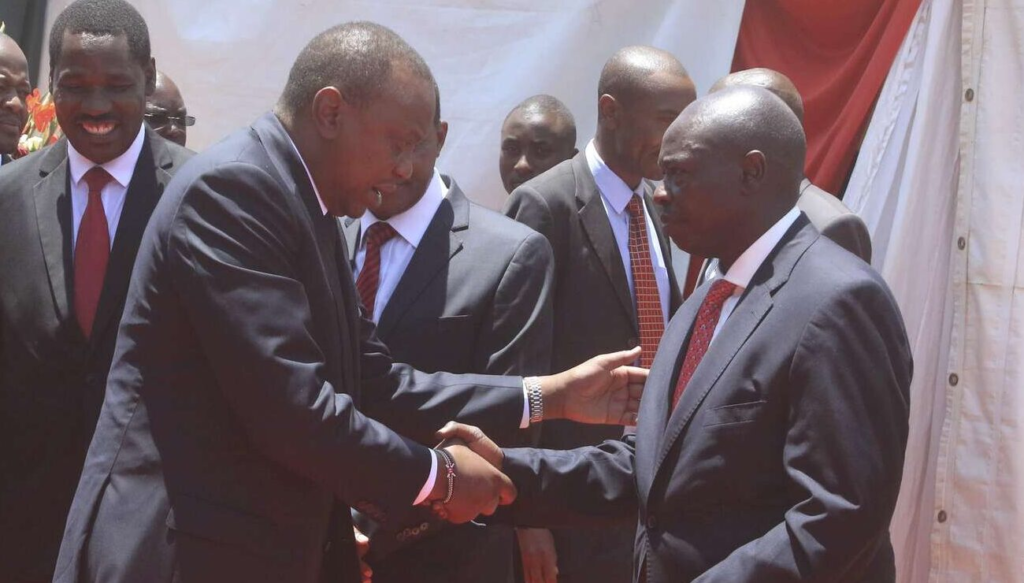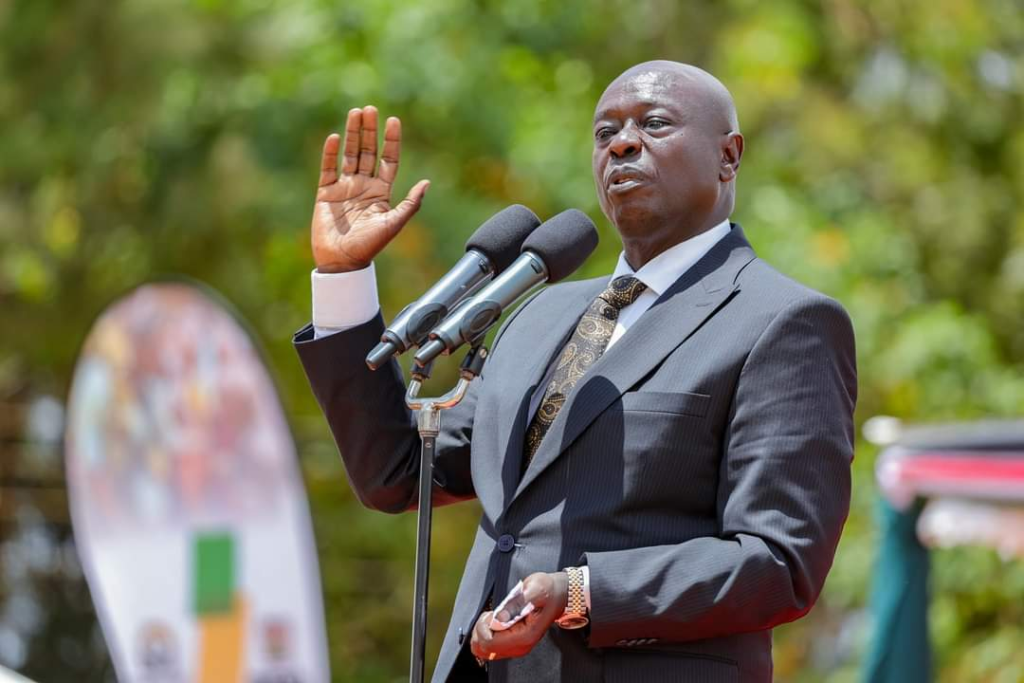
Mwau Dorothy
Unexpectedly, Deputy President (DP) Gachagua has taken a daring step to patch things up with the former President Uhuru Kenyatta, indicating a possible change in the political landscape.

This event occurs in the context of tense relations between the two leaders, which have been exacerbated by
their differing approaches and goals in politics, which have led to conjecture and ambiguity in
Kenya’s political system.
Due to divergent political goals and approaches, DP Gachagua and President Kenyatta’s
relationship has become strained in recent months. There is a sense of divide in their political
circles and among the public as a result of these public declarations and political ploys that
reveal this rift.
This event could change power relations and alliances in Kenya’s political system, which has
important political ramifications. Gachagua and Kenyatta’s alliance suggests a possible
realignment of political forces, which might have an impact on upcoming elections and the
course of policies.

DP Gachagua stated in a statement that he wanted to make amends with President Kenyatta to
maintain stability and national unity. Although he acknowledged the difficulties in their
relationship, he underlined the need to put the needs of the country ahead of personal or political
disputes.
Gachagua underlined the significance of setting aside personal goals for the greater welfare of
the nation while admitting their historical disagreements. He urged other political figures to place
a high priority on harmony and collaboration, particularly in the face of urgent national issues
that need for a coordinated response.
Gachagua extended an olive branch, and President Kenyatta accepted it graciously, emphasizing
the importance of harmony both inside and across the political spectrum. Rebuilding trust and
cooperating on critical problems impacting Kenya’s progress, like social welfare, security, and
economic recovery, were pledged by both presidents.
This trend gives hope for better governance and productive cooperation when dealing with
important problems. The public’s response to this reconciliation endeavor, meanwhile, has been
uneven; while some are cautiously enthusiastic about its possible results, others are suspicious
due to political dynamics and prior experiences.
Political observers have observed that political leaders’ strategic unity is critical to promoting
Kenya’s agenda and overcoming difficult obstacles. The move toward reconciliation signals
stability and coherence both at home and abroad, which has repercussions for Kenya’s diplomatic
relations and international status.
The political landscape of Kenya in the future will present both chances and challenges as
Gachagua and Kenyatta set out on this path of healing. Their efforts will only be successful if
they remain committed, have sincere conversations, and have a common goal for the
development of the nation. In conclusion, DP Gachagua’s effort to patch things up with President
Kenyatta represents a dramatic shift in Kenya’s political landscape, one that could have
repercussions for unity, governance, and the advancement of the country.




